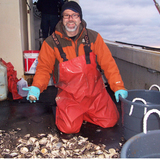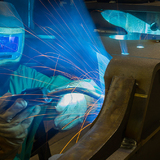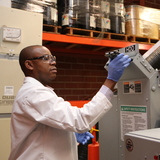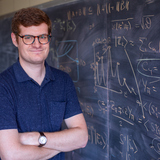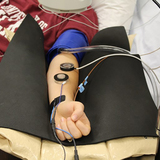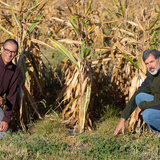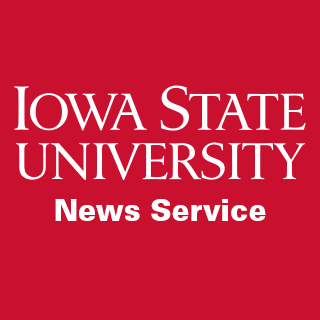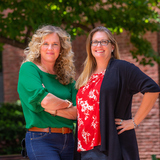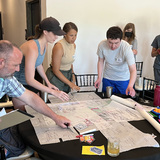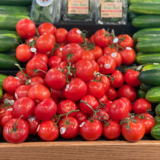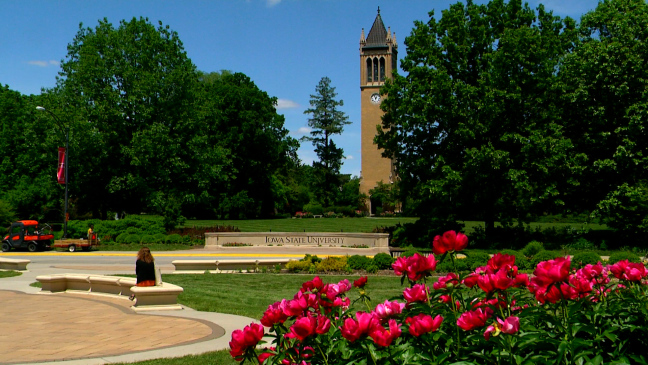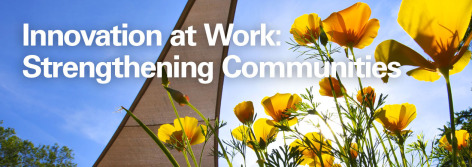News Archive
Friday, August 12 2022
-
Study shows Gulf of Maine cooling for 900 years, then quickly warming since late 1800s
Researchers combined a marine history based on geochemical information in clam shells with thousands of computer simulations to determine that centuries of cooling in the Gulf of Maine suddenly reversed in the late 1800s. The researchers' climate models say greenhouse gas emissions have been a major driver of the warming in the Gulf of Maine.
-
Apprentices hone their writing, speaking skills through ISU-John Deere partnership
Through a partnership with John Deere, faculty in ISU’s English Department are helping high school apprentices sharpen their writing and speaking skills through a four-week communications training in Davenport, Waterloo and East Moline, Illinois.
-
See how ISU research is part of your everyday life at the Iowa State Fair
As part of its 75th anniversary celebration, the Ames National Laboratory is heading to the Iowa State Fair this year to demonstrate how scientists at Ames Lab and Iowa State University are tackling big challenges, from lead-free solder to upcycling and recycling to more efficient cooling systems.
-
Linking diversity at performing arts nonprofits with marketing, funding, location
Researchers tracked changes in the racial makeup and income levels of customers at two dozen nonprofit performing arts organizations over seven years. They then investigated how marketing and other factors, like location and funders, impacted what they define as customer diversity, equity and inclusion (DEI).
-
Physicists use quantum simulation tools to study, understand exotic state of matter
Physicists have demonstrated how simulations using quantum computing can enable observation of a distinctive state of matter taken out of its normal equilibrium. Such novel states of matter could one day lead to developments in fast, powerful quantum information storage and precision measurement science.
-
Training blood vessels may help protect against heart attack, stroke
A growing number of studies indicate short, repeated bouts of reduced circulation with a blood pressure cuff may help reduce tissue damage and prevent the worst outcomes of heart attacks and strokes. Researchers have found the simple, noninvasive procedure can boost vascular and cardiac functions, modestly lower blood pressure and reduce the heart’s workload.
-
Iowa State hits record $601.7 million in external funding, including record research dollars
Iowa State University set records in total external funding and external sponsored research funding during the 2022 fiscal year that ended June 30. Iowa State attracted a total of $601.7 million in external funding, beating the old record by $42.6 million. Iowa State researchers attracted $284.2 million, beating the old record by $23.3 million.
-
Des Moines Area Community College, Iowa State launch new program for transfer students
Thousands of students begin their quest for a bachelor’s degree each year at one of Iowa’s community colleges before transferring to a four-year institution. Iowa State University and Des Moines Area Community College have launched a new program to make the transfer process even smoother for their shared students.
-
Building trust and protecting data to support kids in Iowa
ISU faculty, seven state departments and Head Start programs in Iowa created I2D2, a highly-secure, cross-program data-sharing system, to better serve young children and their families. The collaboration has produced several success stories and recently garnered national attention as a model that can benefit other states and municipalities.
-
Iowa State students provide landscape expertise in proposed Mississippi River bridge project
Iowa State University landscape architecture students are involved in what could one day be the longest wildlife bridge in the world: a proposed multi-use bison crossing and public viewing area over the Mississippi River.
-
Who trusts gene-edited foods? New study gauges public acceptance
Researchers at ISU surveyed a nationally representative sample of 2,000 U.S. residents to gauge public acceptance of gene-edited foods. Social factors like food beliefs and trust in institutions played a big role in the participants' willingness to eat or actively avoid products made with gene-editing technologies.
